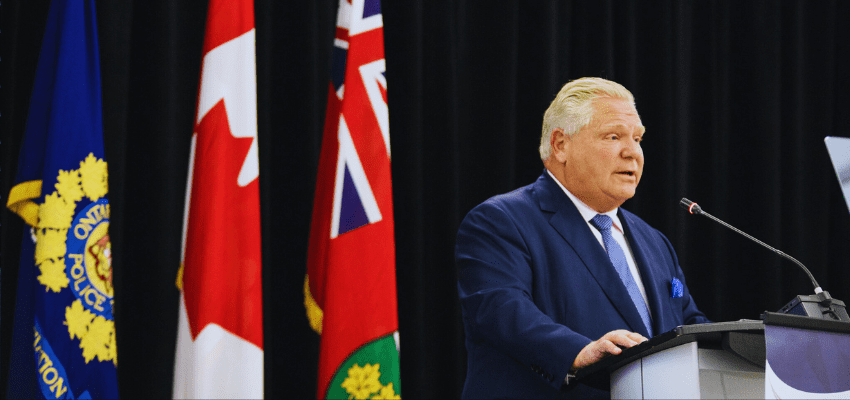This article originally appeared in The Hamilton Spectator.
By Peter Copeland and Karen Restoule, January 9, 2025
First Nations need better policing. But they do not need or want more of the same.
Traditional policing, offered by the state without local control or mediation, has failed miserably. For decades, First Nations have sought new approaches. In a small measure, the day may have arrived.
Until recently, no First Nations police services in Ontario were covered by the province’s policing legislation, which means there were gaps in accountability, service delivery standards and protections for police service employees as well as the citizens they serve.
Ontario’s historic agreement with the Nishnawbe Aski Nation (NAN) integrates its police service into the provincial policing framework under the Community Safety and Policing Act (CSPA) and marks a pivot for First Nations policing in Canada. This decision exemplifies a commendable willingness to prioritize practical improvements in public safety over broader political goals, such as assertions of Indigenous sovereignty or self-government.
By opting into this framework, NAN secured both long-term benefits for its communities and political control over its police service — a bargain the province may come to regret.
The Nishnawbe Aski Police Service (NAPS), Canada’s largest First Nations-led police service, serves 34 remote communities in northern Ontario. These communities face some of the highest crime rates in the country. Historically, NAPS has been funded under the federal First Nations and Inuit Policing Program (FNIPP) introduced in 1991: the federal government covers 52 per cent and the province 48 per cent of the costs of policing in select First Nation communities.
The problem with the program is its funding model is arbitrary. Funding levels are often negotiated without regard to demonstrated community need or operational realities. It is no surprise it is now facing a, likely successful, court challenge. The program left First Nations police services chronically underfunded, with officers working in substandard conditions, without decent housing and with insufficient resources.
The decision to align NAPS with provincial policing legislation is a welcome departure from the more combative, all-or-nothing attempts by some First Nations to single-mindedly pursue sovereignty. Under the CSPA framework, NAPS gains access to consistent, needs-based funding and operational stability.
Crucially, this agreement allows NAN to retain significant political control over its police service. Unlike municipal police boards in Ontario, which include members appointed by the province, NAN appoints all members of the NAPS governing board. This ensures NAN communities maintain substantial influence over policing policies and funding priorities that impact their communities. It also creates an unusual dynamic where the province funds the service but has limited leverage to influence decision-making, which raises questions about the long-term balance of governance and accountability.
It will be interesting to observe how this rolls out — it will be politically challenging for the province to promote provincial policies through board member appointments or to influence budget decisions.
Whatever the motivations, by entering this agreement NAN has shown that pragmatism and self-determination are not mutually exclusive. Public safety is a foundational element of governance and without it, other goals — such as economic development, education and health — are unattainable. This approach demonstrates the pursuit of autonomy is necessarily not diminished by partnership.
This historic partnership sets an important precedent for other First Nations police services across Canada. The First Nations Chiefs of Police Association has repeatedly advocated for First Nations policing to be recognized as an essential service to ensure adequate funding and support.
The success of the NAN agreement could encourage other provinces and territories to pursue similar arrangements. By aligning with the CSPA, NAN secures the resources, protections and stability its police service needs while maintaining significant control.
As Ontario takes on the financial responsibility for this agreement. It also underscores the importance of federal follow-through on its commitment to make First Nations policing an essential service and ensures long-term sustainability for initiatives like this one. This agreement is not just a win for NAN — it is a model for First Nations policing reform nationwide.







